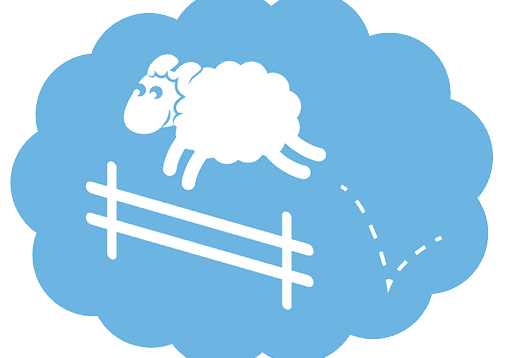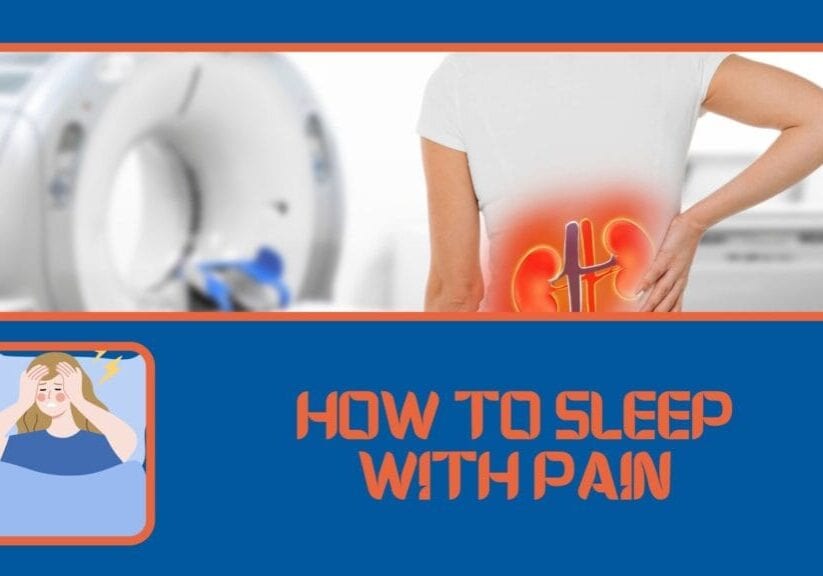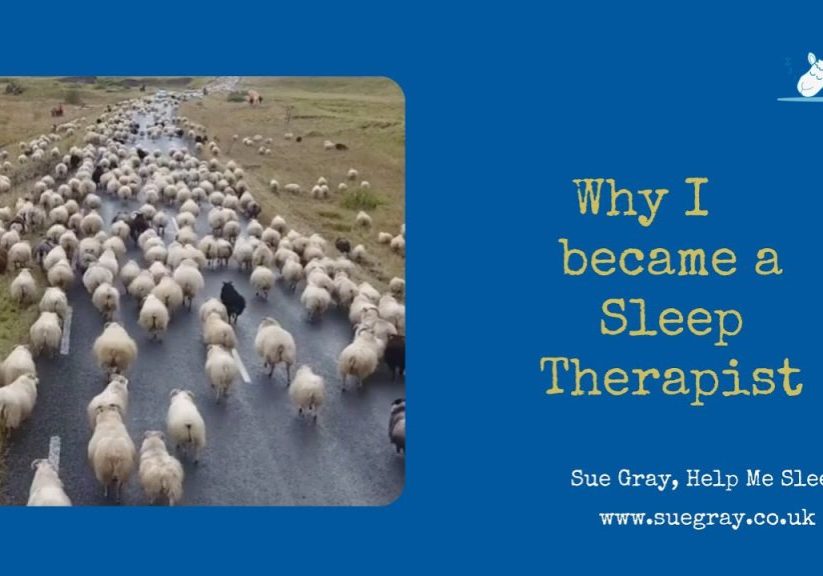
WHO SNORES?
Snoring is a widespread problem – it affects men, women, young, old, babies, children and even animals – particularly my son’s bulldog! Estimates suggest that 45% of the population snore. If you add on partners, then there are vast numbers of people affected by snoring every night.
It’s generally believed that snoring is more common in men than women, but as we get older, we are all more likely to snore. Being overweight increases the likelihood of snoring.
Women and Snoring – perhaps surprisingly, a recent study has found that the snoring is much more common in women than previously reported and that women snore as loudly as men. Women significantly under-report their snoring and can be reluctant to believe they snore loudly. Over a third of women who considered themselves non-snorers turned out to have severe or very severe snoring. This assumption that women do not generally snore means that women are not accessing the Snoring and Sleep Apnoea services they need.
Women are particularly prone to snoring when
- pregnant, 1 in 3 women snore in pregnancy, and it becomes more common as pregnancy goes on.
- going through the menopause,
- post-menopausal – the NHS reports that 61% of post-menopausal women do not feel they sleep well.
Children and Snoring – Children and babies will snore occasionally, and 1 in 10 children snore regularly – usually in Deep Sleep.
WHAT CAUSES SNORING?
Snoring happens when the natural flow of the air we breathe when we inhale is obstructed in some way.
- Mouth breathing is a major cause of snoring. It can be a habit we have got into over time or the result of Nasal Congestion or Obstruction. When we breathe through the mouth, the air hits the back of the throat at a much faster rate than with nasal breathing. It is also raw, untreated air – quite different from the air that has been purified and slowed as it passes through the nose.
- Allergies – this is a common cause of snoring and sometimes snoring is seasonal – e.g. in the hay-fever season.
- Sinusitis is a common cause of snoring, and maybe the result of an allergy.
- Nasal Polyps or a Deviated Septum are physical causes. A Deviated Septum is a problem with the wall that separates one nostril from the other.
- Bulky throat tissue due to being overweight
- Large tonsils and adenoids in children
- Size of nasal passages – this can be a problem in young children and babies. Newborn babies’ nasal passages are tiny and can easily get blocked, but as the child grows their passages naturally expand.
- Poor muscle tone in the tongue or throat – if the muscles are too relaxed then the tongue can collapse and fall back into the airway. Factors that can make this more likely include:
– Alcohol, sleeping tablets and sedatives.
– Ageing
– Having a large neck circumference - Long soft palate and/or uvula: This is the where the palate and the dangling tissue in the back of the mouth ( the uvula) narrows the opening from the nose to the throat. As the tissues vibrate and bump against one another, the airway becomes obstructed, causing snoring.
- Pregnancy hormones can cause nasal congestion. The congestion causes the mucous membranes in the nose to swell, and this gets worse when lying down. Extra tissue around the neck and head can aggravate snoring.
- Hormonal changes due to the menopause can contribute to sleep problems and snoring. The hormone changes start in perimenopause and continue post-menopause. The ovaries produce less of the sleep hormones, oestrogen and progesterone. These changes also result in many women experiencing hot flashes, insomnia, mood disorders, and sleep-disordered breathing – such as snoring. The average age for the menopause is early 50’s, but perimenopause can start when a woman is in her late 30’s and 40’s. However, it can be earlier or later. Menopause can last up to 10 years. By post-menopause, many women find their minds and bodies have come to accept insomnia as a normal state and sleep problems continue.
IS SNORING A PROBLEM?
Occasional snoring and gentle purring are not usually a problem. This type of snoring is may be a nuisance for a partner. See How to Sleep Through Snoring below.
However, habitual, loud or chronic snorers, not only disrupt their partners sleep, but also significantly impair their own sleep quality. Snoring can result in
- morning headaches
- dry mouth
- sore throat
- feelings of not having had a good night’s sleep
- waking in the night
- unrefreshing sleep as a result of spending more time on the border between sleeping and waking (Non-REM 1 Sleep).
If snoring is severe, it could be a symptom of Sleep Apnoea which is a more serious sleep disorder and potentially dangerous. The signs of Sleep Apnoea include snoring loudly, gasping for breath, pauses in or stopping breathing and daytime tiredness. If you suspect Sleep Apnoea, then you should see your GP. You could also use a snoring app or a voice-activated recorder or a recording app to monitor your sleep. For more advice on Sleep Apnoea, see my blogs.
Snoring in pregnancy is common and usually, nothing to be concerned about. However, it is essential to monitor what is happening and keep an eye on weight in pregnancy as extra tissue around the neck and head can aggravate snoring.
If snoring is interfering with your sleep or is quite severe, then speak to your doctor as it could be a sign of Gestational Diabetes. It could also be Sleep Apnoea which can increase the risk of Preeclampsia.
Mouth breathing – recent research suggests that breathing through your mouth can lead to oxygen deficiency, increase feelings of stress and interfere with sleep.
Regular, loud snoring and mouth breathing in children, is being linked to Attention-Deficit / Hyperactivity Disorder (ADHD), learning difficulties, delayed growth and cardiovascular problems. This study combined dental and medical research.
Nasal Obstruction – A study on the effect of nasal obstruction on sleep and breathing found that nasal obstruction produced disturbed sleep. The subjects who had their nasal breathing obstructed
- snored from the first night
- awoke more often
- had a higher number of changes in sleep stage
- changed the amount of time it took to get into REM Sleep
- spent more amount of time in stage I non-REM sleep (light sleep), the borderline between sleep and waking
- One subject developed sleep apnoea during the study simply through an acute nasal obstruction.

Children and Babies– if snoring is loud and happens regularly, then it may be due to
- small nasal passages – these increase as the child grows
- stuffy nose
- infection
- tonsils
- an allergy
- general preference for mouth breathing.
- Sleep Apnoea – also look for signs of difficulty breathing, headaches, tiredness, and mouth breathing. In children, Sleep Apnoea is often due to large tonsils.
Loud snoring and mouth breathing in children, has also been linked to Attention-Deficit / Hyperactivity Disorder (ADHD), learning difficulties, delayed growth and cardiovascular problems.
TYPES OF SNORING
Snoring is not a single problem, so there is not a single, simple solution that works for everyone. This may be why so many over the counter remedies do not seem to work very effective.
There are four main types of snoring – Mouth, Nasal Tongue and Throat. Only testing will determine exactly which type it is – but this guide will give some indicators. Some websites have questionnaires to help you decide. You can also download a snoring app or buy a voice-activated recording device – ideally one with a time stamp.
Mouth Snoring Signs include snoring through an open mouth, sleeping mainly on the back – sometimes on the side. Can lead to infections as air is not filtered when breathing through the mouth.
What to try – find a way to sleep on your side with your mouth shut, unblock a stuffy nose, make lifestyle changes such as losing weight, stopping smoking; consider using a mandibular device specifically for mouth snoring. Hypnotherapy can also be used to stop snoring and correct breathing habits.
Nasal Snoring – Signs include finding hard to breathe through the nose when awake; snoring through the nose (often a sudden snort, whistling or grunting); waking with a dry mouth and headaches. It can be due to blocked nasal passages or a physical problem with the nose- e.g. Deviated Septums. Nasal snoring can be brought on by a cold or pet, dust, hayfever, or food allergy. Alternatively, it could be that Mouth Breathing has become a habit and that this has led to the nose being underused.
What to try – Stop smoking. Unblock your nose. Consider surgery if the cause is physical, e.g. deviated septums. Consider using a mandibular device specifically for nasal snoring. Hypnotherapy can retrain the mind and body to breath gently, slowly and quietly. Coaching can help to make lifestyle changes easy and rapid.
Tongue Snoring – Signs include snoring when lying on your back plus inconsistent high-pitched sounds. It is caused by the tongue becoming too relaxed and falling backwards, blocking throat – which is common when sleeping on your back. May also be a sign of a large tongue.
What to try – Avoid alcohol or sleeping tablets. Check if any medication can make you drowsy. Sleep on your side; consider using a mandibular device specifically for tongue snoring – one that moves the jaw forward. Hypnotherapy to retrain your mind and body to sleep on your side and breathe gently and regularly. Coaching to help make lifestyle changes
Throat Snoring – snoring occurs in every sleeping position, is loud perhaps snorting or puffing, pauses in breathing, frequent visits to the toilet, morning headaches, and waking with a dry mouth. Throat snoring is due to muscles and tissues in the throat becoming too relaxed, leading to a blockage in the throat wall, and so not allowing the air to pass through. This results in more light sleep and less deep restorative sleep so can lead to daytime tiredness.
If you suspect throat snoring, also consider if it may be Sleep Apnoea, as this can lead to high blood pressure, stroke, diabetes if not treated. Sleep Apnoea is usually easy to manage with CPAP, UPAP and UAS therapies and improvement can often be felt in days.
Hypnotherapy can make it easier to sleep comfortably with a mouth, face or nose device. Hypnotherapy can also help retrain the mind and body to breathe gently, deeply and regularly. Coaching can help make lifestyle changes.
SNORING SOLUTIONS
It is essential to fit any snoring remedy with the type of snorer you are. There are many ways to stop or reduce your snoring naturally. There are also devices that correct mouth and tongue positions or open nasal passages. Surgery is another option for some causes of snoring.
There are many over the counter products such as Nasal Strips, Snoring Rings using acupressure, snoring balm, throat sprays, tongue strips and more. A recent article on WebMD found most over the courter remedies to be ineffective. However they were tested for one night only, and many manufacturers recommend prolonged use to get the best results. My husband tried many and found that a snoring ring worked reasonably well for him, but the best results were with the best results were from a couple of sessions of hypnotherapy.
DEVICES
If you are interested in a mandibular device, then ensure you have the one specifically designed for your type of snoring. Check out websites, such as the British Snoring & Sleep Apnoea Association, that have questionnaires designed to identify the type of snorer you are. They then recommend the best device for you.
NATURAL REMEDIES
Singing – Not only is this free, but it strengthens the throat muscles and has a remarkable effect on depression, anxiety, fatigue, stress- and sleep! Singing helps switch on your parasympathetic nervous system – Thrive, Sleep and Smile Mode- and switch off your sympathetic nervous system – Fight, Flight and Survive Mode.
Simple Tongue Exercises – These simple exercises can help stop or reduce snoring. To help you remember to do them, you could add some onto your tooth brushing and bathroom routines and practice others on your commute. You could aim to do some every hour or whenever you remember. Taking your attention inwards can also help switch on your Thrive, Sleep and Smile Mode.
SNORING EXERCISES
Slowly, repeat each vowel out loud for 20 times, every hour or as often as you remember. Make your mouth open wide and exaggerate the movements. Push the tip of your tongue against the roof of your mouth and slide the tongue backwards. Repeat 20 times. Suck your tongue upward so that as much of your tongue as possible is touching the roof of your mouth. Repeat 20 times. Push the back of your tongue downwards and while keeping the tip of your tongue touching your bottom front teeth. With your mouth open, move your jaw to the right and hold for 30 seconds. Then move your jaw to the left and hold for 30 seconds. With your mouth open, tighten and loosen the muscle at the back of your throat repeatedly for 30 seconds. You can use a mirror to see the uvula (the hanging ball at the back of your mouth) move up and down.
Stop sleeping on your back – when you sleep on your back, your tongue is more likely to fall back into the throat, so blocking off the airway. Any fatty tissue around your neck can add pressure on the airway. Solutions include:
- Use more pillows to elevate your head – this can help you sleep on your side
- Use anti-snore or extra pillows to stop you rolling over
- Sew a tennis ball onto pyjamas (if you wear them!)
- Hypnotherapy to re-programme your subconscious to automatically sleep on your side and breathe quietly.
Stop breathing through your mouth – Breathing through your mouth has been getting an increasingly bad press recently. When you inhale through your mouth, the air hits the back of the throat at speed, creating turbulence and snoring. When you inhale through your nose, the air is slowed into a gentle flow as it passes over the curve of the soft palate. To sleep with your mouth closed, try Mouth Tape to tape your mouth shut overnight, or a chin strap to close the mouth.
Practice Nasal Breathing during the day. Focus on keeping your mouth shut and breathing through your nose throughout the day – even when exercising. Breathe gently, slowly and silently. This way of breathing helps calm your nervous system.
Unblock a Stuffy Nose Naturally – If you have a stuffy nose, try unblocking it with humming – this can also work for sinusitis. You may also find that when you tape your mouth shut, your nasal breathing improves.
Repeat this exercise for 10-20 breaths 2-4 times a day, for a few days or until the problems are gone. You can also use preventively this when you are getting a cold.
To relax and sleep better and have more of an impact on your stuffy nose, you can try humming while gently pushing in your ear tragus with your index fingers. Doing this activates the Vagus Nerve (part of the parasympathetic nervous system. (Anders Olsson).
Other ways of reducing Nasal Congestion include:
- Checking for allergies that may be contributing to the problem.
- Avoiding dairy products and eggs as these foods produce more mucus in the body that can lead to blocked nasal passages
- Sinus Washes can help bring down nasal inflammation. Not all doctors recommend these as they can cause infections.
- Acupuncture to dilate the blood vessels in the nostrils, so improving breathing.
Clinical Hypnotherapy can be used to quickly retrain mind and body and so can be useful to stop snoring. Hypnotic instructions can include monitoring breathing while asleep; automatically sleep on the side; being aware of the air coming into the body; quietening and slowing breathing. It can also be useful for reducing the dependence on sleeping tablets or tranquillisers, and a wide range of sleep challenges.
Life Coaching can help people make lifestyle changes to help reduce snoring. These include
- losing excess weight
- stopping smoking
- avoiding alcohol
- reducing the dependence of sleeping tablets or tranquillizers
HOW TO SLEEP WITH A SNORING PARTNER
Coaching and hypnotherapy can help soothe feelings of irritation by allowing you to relax and accept the sound your partner makes. As you relax, breathe gently, and smile, you can allow your partner to be as they are.
You can try to reduce these feelings of irritation or anger yourself by:
Thinking about other sounds you can sleep through and find relaxing – birds singling, dog barking, traffic, emergency vehicles, etc. Then think about the sounds of cicadas chirping – stopping and starting -time and again – and what a relaxing sound that is – yet is a very similar sound to snoring.
Forgiving your partner for their little quirks and think about how the sounds your partner makes mean that they are there with you, close to you and how this is really just a small issue. Thinking lovingly about their little quirks can generate feelings of comfort and safety by having them next with you. You might realise that you too have little quirks that might be irritating to your partner.
If your partner does not think their snoring is an issue, then record your partner with a snoring app or voice-activated device. Ideally one with a timestamp, so you can both see when the snoring occurs and when it disturbs you.
- Go to bed first so that you are not trying to get off to sleep with your partner snoring
- Even if snoring sometimes wakes you up, you will get some quality sleep first. You will often find you have gone through a whole 90-minute sleep cycle before waking.
- Sewing a tennis ball into the back of the snorer’s pyjamas is an old remedy to keep someone from sleeping on their back. Hypnotherapy is much more effective ad comfortable!
- Use a white noise machine or fan. These create a calming hum and masks other sounds. Many people find this helps them sleep.
- Buy an anti-snore pillow – these are designed to create the correct position for the head, the neck and open up the airwaves.
- Wear earplugs – but try not to wear them all the time. You can get ones that cancel out, not just muffle sounds.
Finally, snoring is something most of us do at some time. If it is usually gentle and soft purr or just an occasional bad night, then there is no need to do anything. Remember we have all had evenings where we have ‘overdone it’! But if it is a regular occurrence and is loud and disruptive, then it is worth getting some help to stop. Remember to work out what type of snoring it is before spending money on gadgets, mouthpieces and tapes.
Hypnotherapy is a quick and fast solution for most snoring issues, and coaching can help make lifestyle changes quick and easy. For more information or for help to banish your snoring or your partners snoring, get in touch with HelpMeSleep – 07792 447 331 or [email protected]
USEFUL REFERENCES AND FURTHER READING
Anders Olsson – The Power of Your Breath, founder of Conscious Breathing
The British Snoring and Sleep Apnoea Association
Understanding Nasal Breathing: The Key to Evaluating and Treating, Sleep Disordered Breathing in Adults and Children, Peter Catalano, MD1*, John Walker, DMD2
The Presence of Snoring, as well as its Intensity, Is Underreported by Women Roi Westreich, MD, PhD










